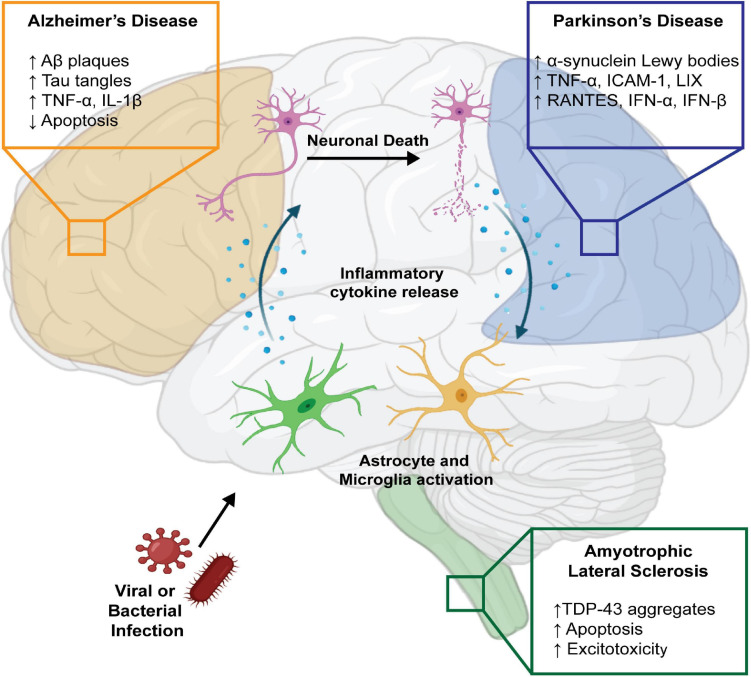FIGURE 1.
Infectious agents may contribute to neurodegenerative diseases directly or via immune activation. Infection by viral and bacterial pathogens can cause pro-inflammatory activation of CNS resident immune cells, including astrocytes and microglia, resulting in neuronal death. Additionally, cellular death directly caused by infectious agents and the release of damage-associated molecular patterns can exacerbate the inflammatory state through further activation of CNS immune cells, perpetuating a cycle of inflammation. In AD, this is often associated with high levels of pro-inflammatory cytokines TNF-α and IL-1β, reduced clearance of infected cells, and accumulation of neurotoxic aggregates composed of Aβ and Tau. This pro-inflammatory state has also been documented in the context of PD, where increased accumulation of neurotoxic α-synuclein is accompanied by high levels of TNF-α, ICAM-1, LIX, RANTES, IFN-α, and IFN-β, produced by infected and activated astrocytes and microglia. Additionally, some pathogens can directly infect neurons resulting in alterations in metabolism, enhanced neuronal excitotoxicity, and enhanced apoptosis, as seen in ALS. Created with BioRender.com.

